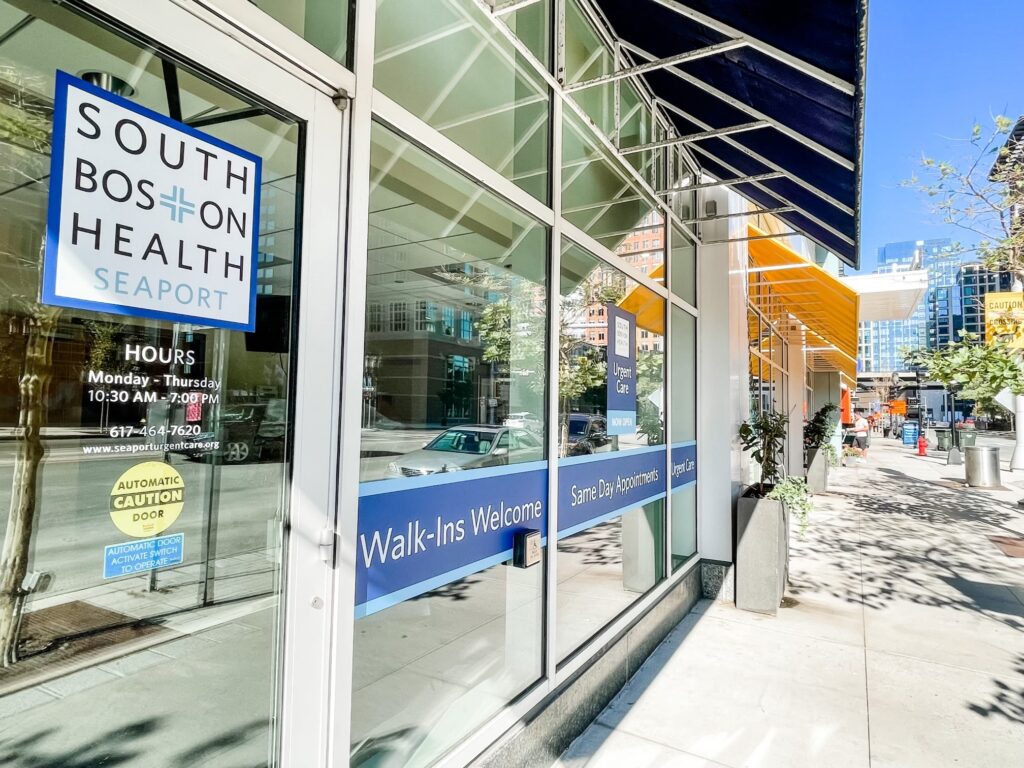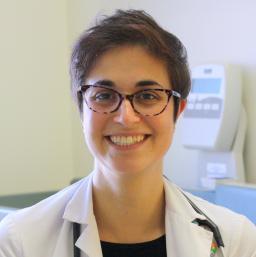Happy. Healthy. Southie.
Supportive and non-judgmental advice from SBCHC's health experts.
Why a Great Urgent Care is Wonderful (and a PCP is Even Better).
By: Jocelyn Guggenheim
At South Boston Community Health Center, we opened our first urgent care site this Fall – South Boston Health Seaport Urgent Care at 505 Congress Street. We are excited and amazed at how, starting from the very first day, it has been incredibly busy. We knew that opening it in the increasingly popular Seaport area of South Boston was likely to be a convenient location for many people who live and work in the area. But what has been perhaps most interesting, is how many patients we are seeing that have no established primary care provider.
To be sure, we are happy to help no matter what brings patients in for these visits. Like all urgent care sites, we provide care for non-life-threatening illnesses and injuries. We work hard to make that care accessible, and convenient.
But we know that the best sick visits are done in the primary care setting. It’s also clear to us that the average patient does not understand that important relationship. So, here it is, why a high-quality urgent care is great, but having a strong primary care provider is better!
Urgent care centers are usually open hours that people need care right away, but typically not 24/7 like an emergency department. Open into the evening, often on weekends, and usually with walk-in options that care is ideally available right when patients need it.
Urgent care visits are efficient and to the point. An urgent care provider cannot refer patients to specialists and doesn’t follow-up on chronic issues. They focus on the problem at hand, helping people feel better as quickly as possible. Often testing for common problems like COVID, influenza, and strep throat, as well as sexually transmitted infections, sprains, strains and fractures, urgent care centers can typically diagnose and address such issues on the spot.
So, what’s the downside? Urgent care centers, especially those not affiliated with a patient’s PCP, have limited information about health histories of patients they see. If problems continue to occur, they may have limited tools to help prevent the now chronic problem from continuing.
Preventative care (screening for common things like cancer and depression), many immunizations, and care for other chronic issues that may not cause symptoms (like high blood pressure) are not addressed in the urgent care setting. Most urgent care centers will not prescribe birth control or start or refill chronic medications for things like anxiety, depression, chronic pain, and ADHD.
A strong primary care practice, on the other hand, is equipped to address these ongoing and often complex conditions, while also able to respond to more immediate patient needs. Whether it’s through an annual well visit (also known as a physical) or a sick visit or visit to follow-up on chronic issues, having a primary care provider (PCP) means having a healthcare provider who has a record of your health challenges, both past and present, and a record of what standard preventative services you have already received. The simple illness may be more thoroughly or accurately addressed the first time when the medical provider has the benefit of knowing the patient and their personal and family medical history. And, if those illnesses need treatment beyond primary care, they can refer patients to specialists.
Despite this, we know urgent care centers serve a vital purpose! We are so happy to see patients who are new to the area. Some primary care sites rely on urgent care sites to help see patients for common, straightforward problems when they don’t have appointments available at the time the patient needs care. And, quite often, we see tourists or professionals in Boston while attending conferences in the Seaport. A nearby urgent care center when you get sick while away from home is a fantastic resource.
Not all urgent care sites are created equal. If you decide you need a visit at an urgent care center look for one affiliated with your PCP. Or, if that’s not possible, find an urgent care center affiliated with another primary care practice or hospital. This will help extend the continuum of care if the problem you come in for is more severe than you originally thought.
Be sure to look for which services the urgent care site provides (and does not provide) to ensure you can get what you need. Also, we recommend you check with your insurance provider to ensure you understand what financial responsibility you may have as a result of your visit. Many payors and plans have different expectations of patient financial responsibility for urgent care visits than they would for a visit to your established primary care provider.
At South Boston Community Health Center, we are committed to providing urgent care in keeping with our mission to provide excellent care to all who need it. We hope our urgent care site will ensure that anyone who needs a quick visit will get one. And we hope those patients who live locally and have no PCP will become primary care patients at our main site so they can get the best of both worlds!

